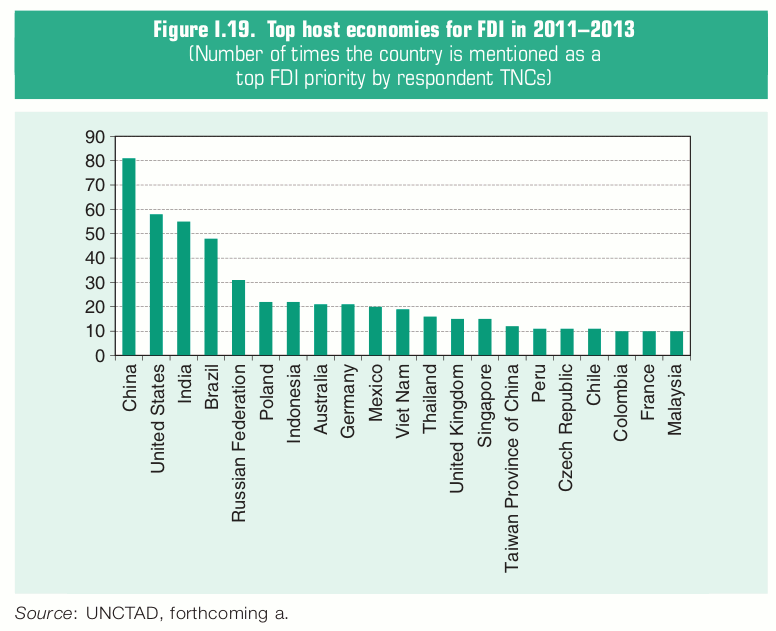Building BRICs of growth
Jun 5th 2008
Record spending on infrastructure will help to sustain rapid growth in emerging economies
THE biggest investment boom in history is under way. Over half of the world's infrastructure investment is now taking place in emerging economies, where sales of excavators have risen more than fivefold since 2000. In total, emerging economies are likely to spend an estimated $1.2 trillion on roads, railways, electricity, telecommunications and other projects this year, equivalent to 6% of their combined GDPs—twice the average infrastructure-investment ratio in developed economies. Largely as a result, total fixed investment in emerging economies could increase by a staggering 16% in real terms this year, according to HSBC, whereas in rich economies it is forecast to be flat. Such investment will help support economic growth this year as America's economy stalls—and for many years to come.
Compounding this year's figure,
Morgan Stanley predicts that emerging economies will spend $22 trillion (in today's prices) on infrastructure over the next ten years, of which China will account for 43% (see left-hand chart). China is already spending around 12% of its GDP on infrastructure. Indeed, China has spent more (in real terms) in the past five years than in the whole of the 20th century. Last year Brazil launched a four-year plan to spend $300 billion to modernise its road network, power plants and ports. The Indian government's latest five-year plan has ambitiously pencilled in nearly $500 billion in infrastructure projects. Russia, the Gulf states and other oil exporters are all pouring part of their higher oil revenues into fixed investment.
Good infrastructure has always played a leading role in economic development, from the roads and aqueducts of ancient Rome to Britain's railway boom in the mid-19th century. But never before has infrastructure spending been so large as a share of world GDP. This is partly because more countries are now industrialising than ever before, but also because China and others are investing at a much brisker pace than rich economies ever did. Even at the peak of Britain's railway mania in the 1840s, total infrastructure investment was only around 5% of GDP.
Infrastructure investment can yield big economic gains. Building roads or railways immediately boosts output and jobs, but it also helps to spur future growth—provided the money is spent wisely. Better transport helps farmers to get their produce to cities, and manufacturers to export their goods overseas. Countries with the lowest transport costs tend to be more open to foreign trade and so enjoy faster growth. Clean water and sanitation also raise the quality of human capital, thereby lifting labour productivity. The World Bank estimates that a 1% increase in a country's infrastructure stock is associated with a 1% increase in the level of GDP. Other studies have concluded that East Asia's much higher investment in infrastructure explains a large part of its faster growth than Latin America.
A recent report by Goldman Sachs argues that infrastructure spending is not just a cause of economic growth, but a consequence of it. As people get richer and more of them live in towns, the demand for electricity, transport, sanitation and housing increases. This mutually reinforcing relationship leads to higher investment and growth. The bank has developed a model that uses expected growth in income, urbanisation and population to forecast future infrastructure demands.
Urbanisation has the biggest impact on electricity requirements. Goldman calculates that a 1% increase in the share of people living in cities leads to a 1.8% increase in demand for installed capacity. A 1% rise in income per head leads to a 0.5% increase in demand. Putting this together, electricity capacity may have to surge by 140% in China and by 80% in India over the next decade (see right-hand chart). Air travel—and hence airports—will see the fastest growth in demand, because it is by far the most sensitive to income: a 1% increase in income per person leads to a 1.4% increase in the number of passengers travelling by air. The number of air passengers could jump by more than 350% in China and by 200% in India over the next decade.
China's faster growth in income per head and its more rapid pace of urbanisation mean that it is likely to pull even further ahead of India on most infrastructure measures. China could add 13 times as many fixed-line phones as India over the decade, seven times as many air passengers and six times as much electricity capacity. Brazil and Russia, which are already much more urbanised and relatively richer (implying slower growth in income), will also see more modest growth in infrastructure.
Economics focus: Building BRICs of growth | The Economist













